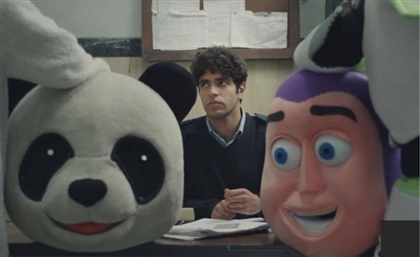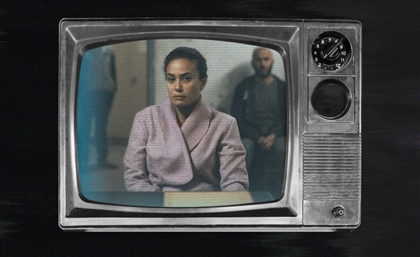Review: Eddington, The Unmasking That Reveals Nothing New
Ari Aster reunites with Joaquin Phoenix for what might be his least compelling project to date, ‘Eddington’.

I was genuinely looking forward to Ari Aster’s Eddington, but it didn’t live up to my expectations. After Hereditary, Midsommar, and the ambitious yet ultimately disappointing Beau Is Afraid, Aster reunites with Joaquin Phoenix for what might be his least compelling project to date. While Eddington is watchable and never exactly dull, it lacks the depth and sharpness of his earlier work.
The film is a satire set in a fictional small town in New Mexico. It pokes fun at how people behaved during the COVID lockdown. The divide over wearing masks becomes a central metaphor for a country that can’t agree on anything. It also touches on America’s fixation with online conspiracy theories, political correctness, the Black Lives Matter movement, and white privilege. In many ways, the town serves as a microcosm of the United States.
On paper, this all sounds splendid. The problem is that Eddington barely scratches the surface of the topics it raises. Its commentary feels shallow, and its attempts at humour often come off as forced. It wants to be clever and biting, but ends up being more smug than insightful.
The plot kicks off when Sheriff Joe Cross (Joaquin Phoenix) refuses to wear a mask at the local convenience store. His small yet defiant gesture leads to him deciding to run for mayor. He positions himself in direct opposition to the current mayor, Ted Garcia (Pedro Pascal), who’s enforcing strict mask mandates. But this isn’t just a political standoff. It’s personal. We learn that Joe’s wife, Louise (Emma Stone), shares a complicated past with Ted.
-264987e5-8158-49b8-ba7e-468f4610f8ae.jpg) The campaign quickly spirals into a battleground of clashing ideologies. The film then takes an unexpected turn. When several murders are committed, it starts to enter Coen Brothers territory. Although, it plays more like imitation than homage. Still, there are things to admire. Joaquin Phoenix delivers a strong performance as a sheriff no one respects. Emma Stone is equally compelling, even with minimal dialogue. I was less impressed by Austin Butler, whose character felt underwritten and borderline cartoonish.
The campaign quickly spirals into a battleground of clashing ideologies. The film then takes an unexpected turn. When several murders are committed, it starts to enter Coen Brothers territory. Although, it plays more like imitation than homage. Still, there are things to admire. Joaquin Phoenix delivers a strong performance as a sheriff no one respects. Emma Stone is equally compelling, even with minimal dialogue. I was less impressed by Austin Butler, whose character felt underwritten and borderline cartoonish.
Ari Aster has always excelled at turning ordinary situations into arenas of existential horror. But here, his usual flair for emotional tension is replaced by a kind of self-conscious quirk. The tone is inconsistent. It goes from deadpan humour to surface-level social commentary. It tries to make you laugh and shock you without fully committing to either pursuit. Visually, the film has its moments. Darius Khondji’s camerawork impresses in a few sequences, but even that can’t save the script’s unevenness.
Eddington follows a similar structure to that of Beau Is Afraid. Both begin in grounded reality and slowly unravel into exaggerated chaos. At least with Beau Is Afraid, the absurdity was unpredictable. With Eddington, the plot escalates, but never quite evolves. It doesn’t land on any revelations. Unlike directors like Charlie Kaufman or Luis Buñuel, who use absurdity to interrogate meaning, Aster stops at the surface.
-a73e2f1c-fe22-4f42-b6c7-29e61009aa2a.jpg) This is ultimately what I found most frustrating about the film. It had so much potential. What could have been a vital cultural reckoning is reduced to a series of shallow jabs. In the end, Eddington is not a total disaster. It’s a missed opportunity. Aster might have thought that his film is unmasking a nation in crisis, but it ends up revealing little more than a blank expression.
This is ultimately what I found most frustrating about the film. It had so much potential. What could have been a vital cultural reckoning is reduced to a series of shallow jabs. In the end, Eddington is not a total disaster. It’s a missed opportunity. Aster might have thought that his film is unmasking a nation in crisis, but it ends up revealing little more than a blank expression.
- Previous Article USD 27 Billion Automotive Plan to Drive Industrial Growth in Abu Dhabi
- Next Article Inside Egypt’s Seven UNESCO World Heritage Sites



























